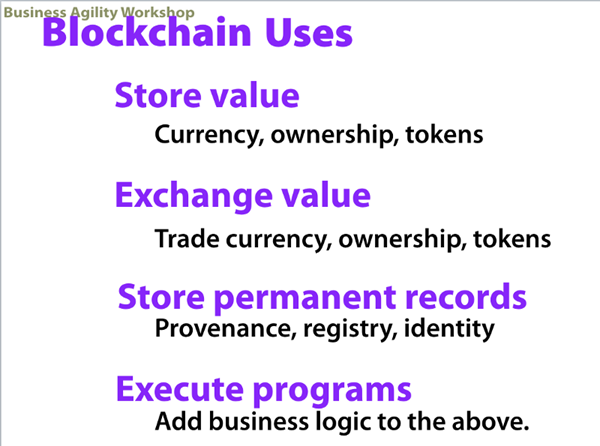Government Has Done Nothing Good for Bitcoin
The dollar exchange ratio of Bitcoin has finally topped $2,000. This is thanks in part to new international demand for the currency, due to the great ransomware panic of 2017. It appears that this was a catalyzing event to get BTC to the new level.
The hackers demanded Bitcoin as payment for unlocking user files, and reportedly offered excellent customer service. Many people who had thus far eschewed Bitcoin were enticed into the ownership and exchange of this payment tool for the first time.
The story reminds me of Bernard Mandeville’s theory that vice can nurse ingenuity.
Do we not owe the Growth of Wine
To the dry shabby crooked Vine?
This newest turn is no different from many factors that have led to Bitcoin’s rise and rise over the last eight years. It was released as a safe haven from the financial crisis of 2008. If a decline in real estate values can really threaten the foundations of world finance, how good can our current money and payment systems really be? Our times were crying out for something new.
The Internet had shown us how to do almost everything better than before. Surely it could the same for money and payment systems. Money itself hadn’t been modernized in one hundred years. As for credit cards, they work today as they did just after World War II: third parties assess your trustworthiness and grant you trust based on your identity. We haven’t really advanced much beyond this basic model.
Disruptive Money
Then came Bitcoin. With its payment system, you exchange ownership rights to scarce digital goods (yes, goods, in this case, is a metaphor for a mathematical fiction) directly peer-to-peer with no third-party source of intermediation. In other words, it works exactly the way cash works when you buy milk at the convenience store. Your identity doesn’t matter. The paper is a proxy for the ownership of real goods.
But it’s even better because you don’t actually have to be there to make it happen. Any two people on the planet with access to the internet can transfer ownership rights to a digital thing. That makes Bitcoin – the numeraire that makes the ledger system work – a global currency.
Bitcoin never demanded that it be valued by virtue of its existence. It merely presented itself to market actors and asked them to judge. Ten months following its release, the first posted price of Bitcoin appeared: someone, somewhere found this thing valuable. The market itself – not a decree, not an imposition by intellectuals, and not some social consensus – is the source of Bitcoin’s value.
Of course, it was the edgiest users in the early days that gave Bitcoin its most robust test runs. Initially, it was valuable for online trades of pot, and this was long before many uses of marijuana became legal for many Americans. Then it has been used for other nefarious purposes involving escort services and more.
I don’t see that this is a point of embarrassment for Bitcoin. It’s the path of many innovations. Mandeville again comes to mind.
Hackers Love It Too
You can see, then, why the hackers would choose it as a preferred currency. No exchange rates between countries. No third parties to block access. No limits on the people who can use and transfer the stuff. The hackers were pretty smart here: they preferred this currency to every other existing currency that is tracked, controlled, and limited in its development by governments.
Bitcoin was blessed in its early days by government officials who figured it was going nowhere. Years went by while it thrived in an atmosphere of benign neglect. That was the source of its rising sophistication and marketability. Bitcoin didn’t need government to become its champion; Bitcoin needed government to stay out of the way.
For the most part government didn’t interfere until the dread day of March 18, 2013, on which the Financial Crimes Enforcement Network imposed strict rules for converting between Bitcoin and dollars. If you made a business out of this practice, FinCEN demanded (no Congressional mandate required) that you register as a money-exchange business, a very expensive and arduous process.
That regulatory imposition, only four-pages long, had a devastating effect on market development. Hundreds of entrepreneurs had seen an opportunity here. Suddenly they were all being told that if they go ahead with their plans, they would be treated as criminals. Many players just walked away. The only institutions that were left after this shake out were the largest ones that had the capital to weather the new costs of doing business. The free market of Bitcoin/dollar exchange was at an end.
A Pain in the Neck
It’s been this way for Bitcoin all along. So long as you stay within the cryptocurrency’s ecosphere, you are good and safe and there is innovation all around. Moving from dollars to Bitcoin and back again, however, presents some serious problems.
I don’t mean technological problems, of course. Bitcoin can handle that. The problem stems from government’s desire to make Bitcoin behave like an old-fashioned money and payment system, with know-your-customer rules and, inevitably, the desire of our rulers to wet their beaks in a new revenue pond. They want a cut of every new source of wealth, which means that they want to follow every monetary tool, especially that which is new and innovative.
Bitcoin is becoming a money? You have to give government its cut.
Fortune reports:
A closely-watched fight between the Internal Revenue Service and a popular bitcoin exchange took a new twist last week, as senior Republicans in Congress sent a sharply-worded letter that suggests the tax agency is overstepping its powers.
The letter concerns an IRS investigation into possible tax evasion by customers who use Coinbase, a San Francisco-based company that many people use to buy digital currencies. As part of the investigation, which began last year, officials demanded that Coinbase turn over information for every one of its accounts.
The letter opposing this move is actually pretty good:
We strongly question whether the IRS has actually established a reasonable basis to support the mass production of records for half of a million people, the vast majority of whom appear to not be conducting the volume of transactions needed to report them to the IRS. Based on the information before us, this summons seems overly broad, extremely burdensome, and highly intrusive to a large population of individuals. The IRS’s actions in this case also set a dangerous precedent for companies facilitating virtual currency transactions that could be subject to a similar summons.
Few innovations have been met with such incredulity from the outset through the rise and development periods. Now Bitcoin is firmly rooted in modern finance, and is poised to be a leader in the future of currency and payment systems. No matter what government does now, Bitcoin has a brilliant future.
The Need Is There
We need a nongovernment, global currency that is reliable, secure, universally available, unmediated by financial authority, and tied to real ownership. We didn’t entirely know that we needed this – and we didn’t know it was technically possible to do this entirely in a digital realm – until Bitcoin came along. Now we do and there is no going back.
It operates on its own just fine. All government can do – now just as in the past – is slow the growth and keep the future from happening as quickly as it should.
To be sure, many stakeholders in the Bitcoin space favor some government involvement, if only to end the legal uncertainty that continues to hold back the innovation and the infrastructure behind it. This is tragic but understandable in times when all human activity is either mandated or prohibited. Here’s to hoping that cryptocurrency itself makes strides in changing that presumption.
N.B.: FEE has been on the cutting edge of commentary on this important topic since the early days, and FEE’s work surely could use donations in this currency.
Jeffrey Tucker is Director of Content for the Foundation for Economic Education. He is also Chief Liberty Officer and founder of Liberty.me, Distinguished Honorary Member of Mises Brazil, research fellow at the Acton Institute, policy adviser of the Heartland Institute, founder of the CryptoCurrency Conference, member of the editorial board of the Molinari Review, an advisor to the blockchain application builder Factom, and author of five books. He has written 150 introductions to books and many thousands of articles appearing in the scholarly and popular press.
This article was originally published on FEE.org. Read the original article.


